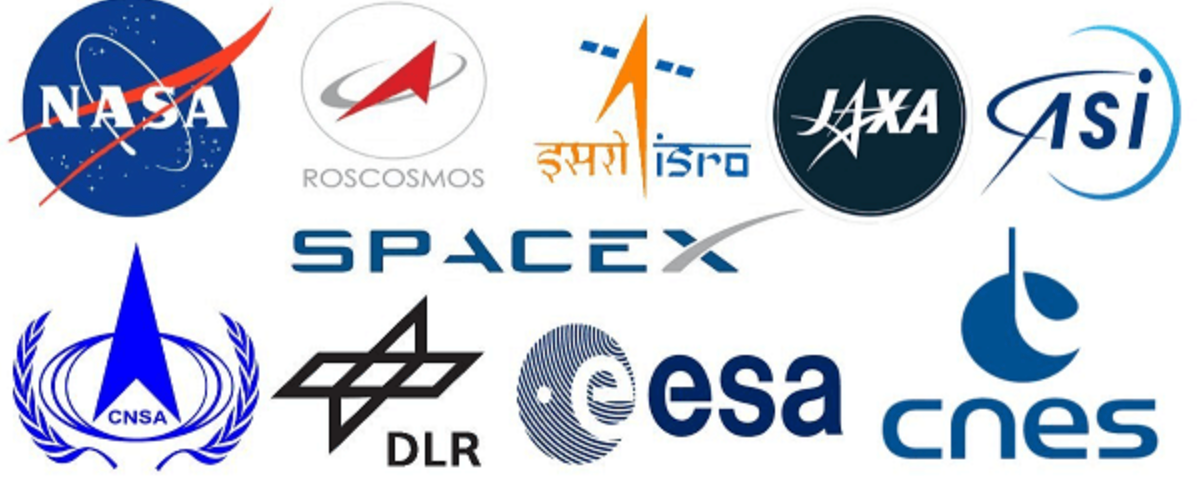Land Your Next Job In The Defense Industry With These Top Tips!
Why Work in Defense?
The U.S. defense industry is rapidly evolving, with billions being invested in emerging technologies like space systems, AI, cybersecurity, and autonomous systems. This sector offers cutting-edge work, high salaries, and job stability—especially in key defense hubs such as Virginia, Texas, and Washington, D.C.. It is a stable and lucrative industry with exciting projects all over America.
What Jobs Are Available?
When thinking of defense or the DoD you may immediately think military or CIA. While yes, this is a popular route for most to get their foot into the door in the Defense industry, there are actually so many different types of jobs and career paths including many technical roles.
Some of the most in-demand technical jobs in Defense include:
• Cybersecurity Engineer - Protect military networks from cyber threats.
• Aerospace Engineer - Work on satellites, fighter jets, or hypersonic missiles.
• Software Engineer - Develop AI-driven Defense systems, simulations, and automation.
• Data Scientist - Analyze intelligence data for the DoD.
• Electrical/Mechanical Engineer - Design advanced weapon systems and robotics.
• System/ DevOps Engineer - Work with systems and deployment missions.
Top employers with the majority of contracts include Lockheed Martin, Northrop
Grumman, Raytheon Technologies, and General Dynamics, alongside government
agencies like the Department of Defense (DoD) and DARPA.
There are multiple ways to get hired onto a Gov contract such as through specialist recruitment agencies
or Gov subcontractors.
What Skills Should You Develop?
These skills have been highlighted as the ones that are most sought after right now in the
Defense industry and are due to increase demand for these skills the most over the coming
years.
These are skills you can up-skill in to stand out in the Defense hiring process.
✅ Programming - Python, C++, and embedded systems for Defense software.
✅ Machine Learning & AI - AI-driven automation is a major focus for 2025.
✅ Cybersecurity - Critical for national security. Get CompTIA Security+ or CISSP
certifications.
✅ Networking & Cloud Computing - Defense agencies use AWS, Azure GovCloud, and
classified networks.
✅ Mechanical & Electrical Design - CAD software like SolidWorks is in high demand.
✅ Clearance Preparation - Many roles require security clearance (explained below).
How Much Can You Make In A Job Within The Defense Industry?
The million dollar question. Salaries vary based on job type, security clearance level and location, but here’s what you can expect:
• Entry-Level Software Engineer: $85,000 - $110,000
• Cybersecurity Analyst: $90,000 - $130,000
• Aerospace Engineer: $80,000 - $120,000
• Data Scientist (Defense): $100,000 - $140,000
• Mechanical Engineer: $75,000 - $105,000
With 5+ years of experience, salaries often exceed $150,000, especially with a Top Secret/SCI clearance.
How to Get a Security Clearance (And Why It Matters)
Most Defense jobs require a security clearance, which allows you to access classified information.
Clearances range from:
• Public Trust (lowest level)
• Secret (mid-level, common for engineers)
• Top Secret (TS)/SCI (required for intelligence & cybersecurity)
There are also higher levels of clearances that can only be obtained by taking a polygraph.
So, How Do You Get A Security Clearance?
You can’t apply for clearance yourself—your employer (a Defense company or government
agency) must sponsor you.
To qualify:
• Be a U.S. citizen
• Pass a background check (no criminal history, no major debts)
• No foreign ties that could be a security risk
If you don’t have clearance yet, you could apply for Defense internships, as some companies sponsor pre-clearance investigations for new hires.
How to Get Hired in the Defense Industry
Follow these steps to boost your chances of landing a job:
1. Build a Strong Resume & LinkedIn Profile
- Highlight technical skills (programming, cybersecurity, engineering tools)
- Showcase internships, projects, and certifications• Mention eligibility for security clearance and level if you have one (if applicable)
- Use Defense-related keywords (DoD, aerospace, cybersecurity, AI, classified systems) for better visibility
2. Prepare for Technical & Security Interviews
Defense jobs often require multiple interview rounds, including:
- Technical Interviews - Coding tests, engineering challenges, and system design problems.
- Security Clearance Interviews Reviews - Background checks and in-depth personal history
- Use LeetCode, HackerRank, and defense-specific prep guides for technical interviews.
- Learn behavioral interview techniques (STAR method).
3. Network with Industry Professionals
🚀 Join LinkedIn groups, defense conferences, and STEM networking events.
🚀 Attend AFCEA (Armed Forces Communications & Electronics Association) and DEF
CON for cybersecurity roles.
🚀 Connect with veterans and defense professionals—many have insider job tips.
🚀 Reach out to specialist recruiters or defense space talent agencies such as Axis Talent for live roles or further advice.
Final Thoughts
There are also many specialist recruiters that deal only in Defense roles and so have the knowledge and capabilities to connect you with active contracts and give you specific advice to help you through the process.
Good luck in searching for your role in defense!
—> Reach out to us at Axis Talent if you are on the lookout for your next defense job in USA!
—> Click here for our live roles!
The body content of your post goes here. To edit this text, click on it and delete this default text and start typing your own or paste your own from a different source.













